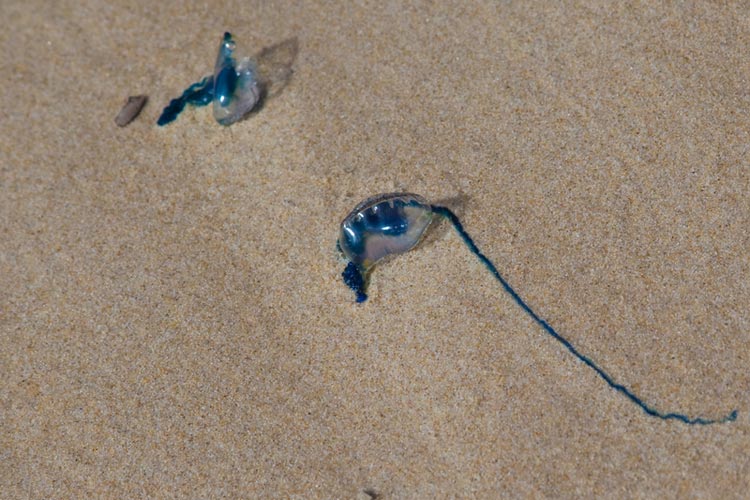Male’, Maldives – Lethal species “Blue bottle” (Physalia utriculus) has been spotted washed up ashore on the beaches of Hulhumale’, along with “Blue Button” (Porpita porpita), a relatively harmless species.
These are not “true jellyfish”, but rather hydroids, however they still sting. The blue bottle, sometimes called the Portuguese man o’ war is known to cause up to 10,000 stings annually off the coast of South Australia and Western Australia.
Stings from the blue bottle are extremely painful, that should subsidize after 3 days. However, if venom travels to the lymph nodes, symptoms mimicking allergic reactions may occur, including airway blockage, cardiac distress, and an inability to breathe . Other symptoms can include fever and shock, which in some extreme cases is fatal, although this is extremely rare.
The Maldivian Housing Development Corporation (HDC) has issued a warning to the public on this matter, stating that these species have been found on the beaches and to be vigilant while on the beach, as these do sting.
These blue hydroids are not to be confused with bioluminescent plankton that recently washed up at the beaches of Hulhumale and other islands of the Maldives. This rare occurrence results in spectacular sights and has attracted well-known global TV channels and countless tourists to Maldivian beaches before.





